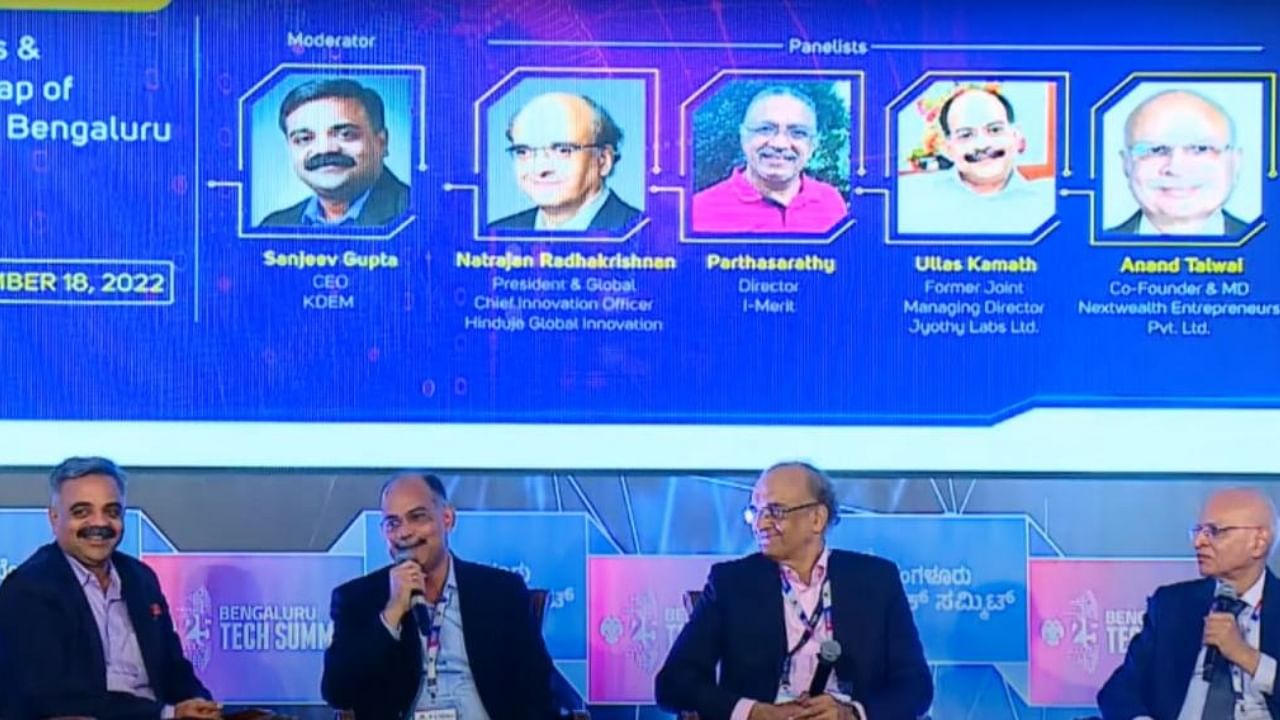
If you thought it was easy for nascent businesses to set up shop in parts of Karnataka outside “India’s Silicon Valley”, think again.
While the last 12 months saw as many as 25 companies jumping onto the “Beyond Bengaluru” bandwagon, more work needs to be done if the government’s initiative to diversify growth beyond the state capital has to succeed, industry veterans said during a session at the Bengaluru Tech Summit last week.
High flight costs, poor infrastructure and a lack of entertainment and sports arenas are some of the concerns raised by those who have already moved to the new clusters.
“The prices of flights cannot be more than an A/C chair car ticket,” Former Jyothy Labs Joint Managing Director Ullas Kamath said, adding the government had to work harder to boost flight connectivity with Bengaluru if it was serious about its latest initiative under the Karnataka Digital Economy Mission (KDEM). For the migrants to have a sense of belonging, the government will also have to invest in the new clusters’ all-round development. “An employee works from Monday to Friday so that he can spend. So, ensure that there is a place for him to spend there. Otherwise, he will come back to Bengaluru,” Kamath added.
Others agreed. “IT-BPM is a 24x7 industry, so the cities also have to be 24x7 in terms of transport, business establishments and entertainment,” said Natrajan Radhakrishnan, the president and global chief innovation officer of Hinduja Global Innovation.
The comments come as the government tries to get global investors to park their money in areas outside Bengaluru, which is already bursting at the seams due to unplanned growth. “It is inevitable that we go beyond Bengaluru. It is our only hope,” Radhakrishnan said. “I do hope and pray the talent that is coming to Bangalore gets spread across Karnataka and not just here. It is not sustainable.”
The state government is developing Mangaluru as a fintech hub, Dharwad as a fast-moving consumer goods hub and Mysuru as a cybersecurity hub. KDEM Chairman BV Naidu expects the three clusters to contribute $5 billion to the economy by 2026 collectively.
Developing three cities may not be enough to ensure that clusters beyond Bengaluru account for a larger pie of the KDEM’s contribution to the economy. “You need to have 10 cities beyond Bengaluru, 10,000 startups by 2030, 10 lakh employees and $10 billion revenue from the IT-BPM industry,” Radhakrishnan said.
KDEM Chief Executive Officer Sanjeev Gupta said he expects to develop three more clusters in the next phase.